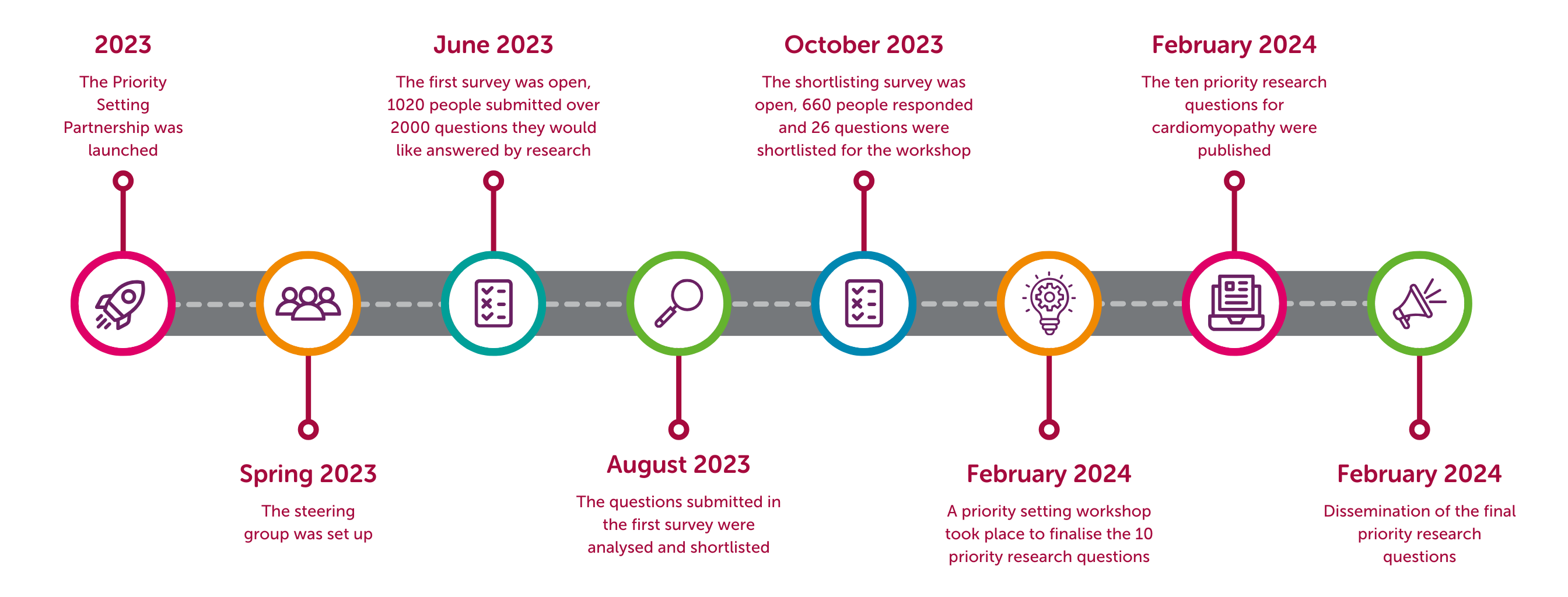We have partnered with the James Lind Alliance to complete a ‘priority setting process’ to identify the top 10 priorities for future cardiomyopathy research.
People affected by cardiomyopathy, as well as the health care professionals involved in caring for them, contributed their ideas and hopes for future research topics, to help shape the future direction of research.
